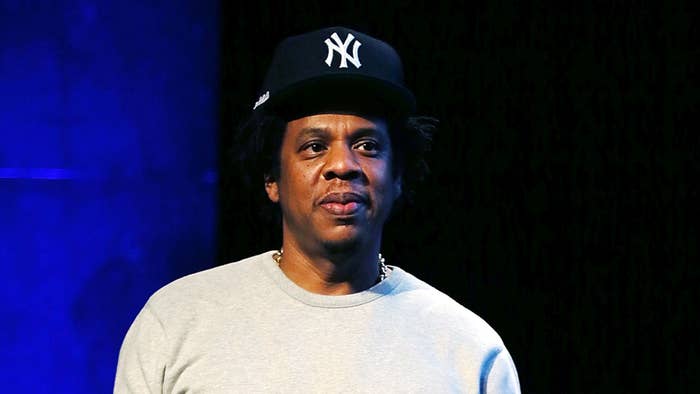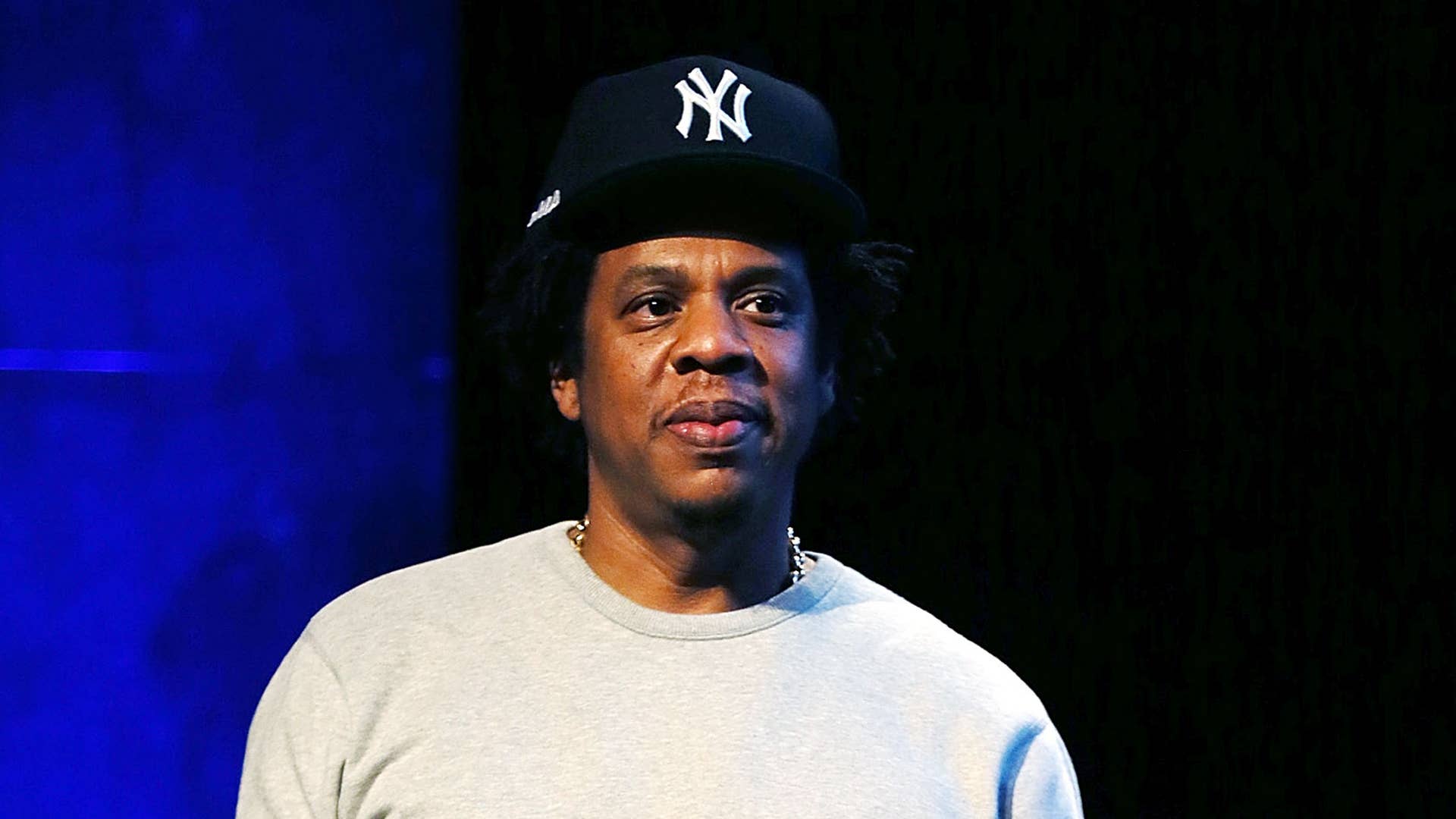
Those who say Jay-Z only recently pivoted to preaching financial independence as a form of Black Excellence in his bars clearly haven't been listening.
It didn't start on 4:44. His much-maligned and ultimately overhated album before that, Magna Carta Holy Grail, closed with him ruminating on the tension between giving back and appearing self-serving. And on Watch the Throne's "Murder to Excellence," he flipped a lonely-at-the-top flex into genuine moroseness at the lack of Black faces in his tax bracket, urging that "we need a million more." We can go back to at least The Blueprint for early examples of CFA Hov suggesting (not telling or admonishing) younger rappers how best to spend their advance money: "Chains is cool to cop, but so is lawyer fees."
All of that is to say, a lot of the LLC Twitter jokes and memes about 4:44 and every Jay verse that followed are overblown. Feel how you want about things like his NFL deal, but the Jay we're seeing of late is just a more pronounced version of the way he's always been, and it's an evolution that makes sense. (Even that deal has foreshadowing: in 2016 he rapped "I'm in the room where real niggas not allowed" as a boast.)
At age 50, with three young children and a bigger fortune than any other rapper ever amassed, what do you expect him to be focused on other than ideas of legacy, generational prosperity, and leaving the culture in a better standing than it was when he came into it? (A relatively recent song like "Seen It All" proves he can still wax poetic on his '92 coke days as sharply as ever when he locks in, but we're long removed from that being his prevailing subject matter.) On 2013's "Nickels and Dimes," he was of the opinion that "the purest form of giving is anonymous to anonymous." By the time he got to 4:44 four years later (following a harsh piece in the New Yorker and perhaps more crucially, a sit-down with Harry Belafonte) it seems Jay decided that seeing his name at the forefront of certain issues in certain instances can hold as much weight as what he does behind the scenes.
This all brings us to this weekend's new song, "Black Entrepreneur," a smooth but angsty track from longtime collaborator Pharrell, on which Jay features. It is the most straightforward instance of Jay giving financial game yet, with lines as overt as: "If you can't buy the building at least stock the shelf/Then keep on stackin' 'til you stockin' for yourself."
The intent behind the verse is genuine, but the rhymes are, in their directness, ultimately maudlin and preachy. (Jay as featured guest has a history of taking a song's concept too literally, but I will ride for his "Monster" verse until they deactivate my account.) The trademark Jigga wit that put a moratorium on money phone pics in "The Story of O.J." and the first-person narrative that colors the likes of "What's Free" are absent here. Instead of Triple OG Hov once again re-telling his story to broadly inspire, and painting his wins as universally aspirational, “Entrepreneur” comes across as talk you might hear from any billionaire: pull yourself up from the bootstraps and you can get this superyacht one day. No one stocking shelves wants to hear that right now, especially in a year as oppressive on the ninety-nine percent as this one.
The verse is never more interesting than its start: "Lies told to you, through YouTubes and Hulus/Shows with no hues that look like you do." There's an intriguing skepticism towards Hollywood's promises of increased inclusion and representation that I'd love to hear more about from a guy who throws an Oscars afterparty specifically catered towards Black creators. Then it gives way to a confusing line about Black Twitter and Jack Dorsey (but not a shot, since they appear to be friendly?) Is he arguing that we should do more for the app than it deserves? Is he saying there should be a Black person at the top alongside Dorsey, since our culture objectively has the tightest grip on the app? It's unclear.
Elsewhere, Jay invokes dichotomies that he himself lives. "For every Gucci, support two FUBUs" checks out for a guy who wore a lot of the former on his last solo tour, but also created merch for it with Jerry Lorenzo's Fear of God. And while there are no direct references to the NFL or Goodell, ending the verse with “I’m on the board” works as both a nod to his defense of that deal as much as it alludes to him and Puffy co-chairing an annual Black Excellence event in the Roc Nation brunch.
It's not a bad verse. (The weakest in a remarkable late-career run he’s been on since 2016’s “Drug Dealers Anonymous”? Maybe, but still.) But when I hear Jay spit a line like “Financial freedom my only hope/fuck living rich and dying broke” it feels like listening to an elder statesmen giving game to his juniors who are racking up Avianne charges. And even when that isn’t the case, he usually centers the story on himself. If he’s not talking to his fellow rappers or millionaires about how to stay relevant and wealthy, these types of verses from Jay work best when he’s telling his own unique story and leaves enough blanks for the listener to fill in his blueprint with their own aspirations.
The stunning video, directed by Calmatic, affirms his (and Pharrell’s) heart is in the right place, but the bars themselves aren’t as empowering. 4:44 is far from the humorless talking-down-to that detractors say it is, but when he goes this on-the-nose, he gives the “Dinner with Jay-Z” jokes a little too much steam, like he read the memes and decided this is what the people want, so he may as well double-down. A Jay-Z verse doesn’t need to be a seminar to spark inspiration, though. Hopefully the sense of responsibility brought on by this new chapter of his life doesn’t weigh his next bars down.


